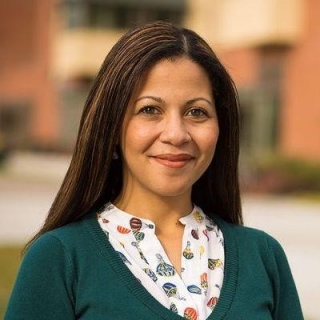On Sept.15, the University of California-Berkeley held an online seminar titled “Blackness and Belonging in North America” to explore the complex experiences of Black people living in North America. McGill political science professor, Dr. Debra Thompson, an expert on race and ethnic politics led the event. As a Black woman with ancestors who were enslaved, Thompson explained that she felt labeled as a societal anomaly in an indifferent world. Thompson noted the violence and microaggressions that actively marginalize Black people in society.
“Black experience in any town or city in the Americas is a haunting experience,” Thompson said. “History is seated at the empty chair in a room when one arrives. African descendants in the Americas are affected by the horrors of the Trans-Atlantic slave trade, [being] commodified as objects, forcibly transported to the ‘New World’ and [being] traded as property. In recognizing this, I’ve realized that I am my ancestor’s wildest dream.”
Thompson stated that many Black people living in Canada and the United States are coping with the emotional, mental, and physical impacts of institutionalized racism. Thompson emphasized that while there is a sense of identity within Black communities, finding acceptance is challenging when Black people are often politicized, segregated, and categorized by systems of governance, courts of law, and socioeconomic status.
“We shouldn’t tell our children to idolize Mr. Martin Luther King’s speech without telling them that he was brutally murdered by white supremacists, just as many other [modern-day] martyrs,” Thompson said. “[We should tell them that] exhausting, disproportionate, and arbitrary encounters are demonstrative of the fact that weaponized privilege can so quickly lead to the loss of a life.”
Thompson noted the importance of recognizing that racism is not confined within the United States’ borders. Racism in Canada is fervent, pervasive, and indicative of institutions that fail to recognize the humanity of Black Canadians.
“The inauguration of Barack Obama was a symbol of progress, [and] perhaps we could even have a Black Prime Minister of Canada one day,” Thompson said. “Years later, Canadians are confronted with a Prime Minister who half-heartedly apologized for wearing blackface. Canadian racism is insidious, hard to identify, and unambiguous under the cloud of inexistence it inhabits within.”
Noah Tonnesen, U1 Science at an American university, believes that Thompson’s talk provided an opportunity to openly discuss the importance of recognizing privilege, systemic inequality, and advantage in an academic setting.
“In order to fulfill the promises of our constitution and truly bring racial justice, it is important that people in privileged positions are able to recognize their advantage over others,” Tonnesen said. “[To help us] work towards providing equal opportunities and outcomes for all.”
Delice Thomas, alumnus of McGill (B.A. ‘12) who is now completing her graduate studies at the University of Toronto, explained how she was unconsciously excluded from many opportunities during her time at both institutions.
“Segregation isn’t buried. It is found in modern-day academia and strengthened through privilege,” Thomas said. “Social recognition and awareness is only the beginning […] there is much more work to be done.”







